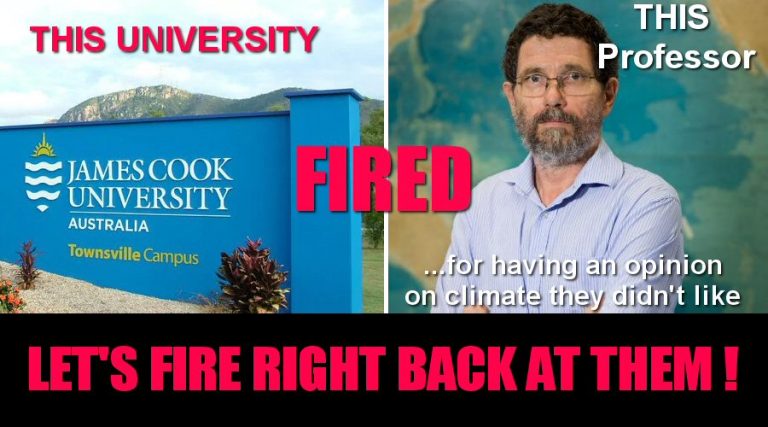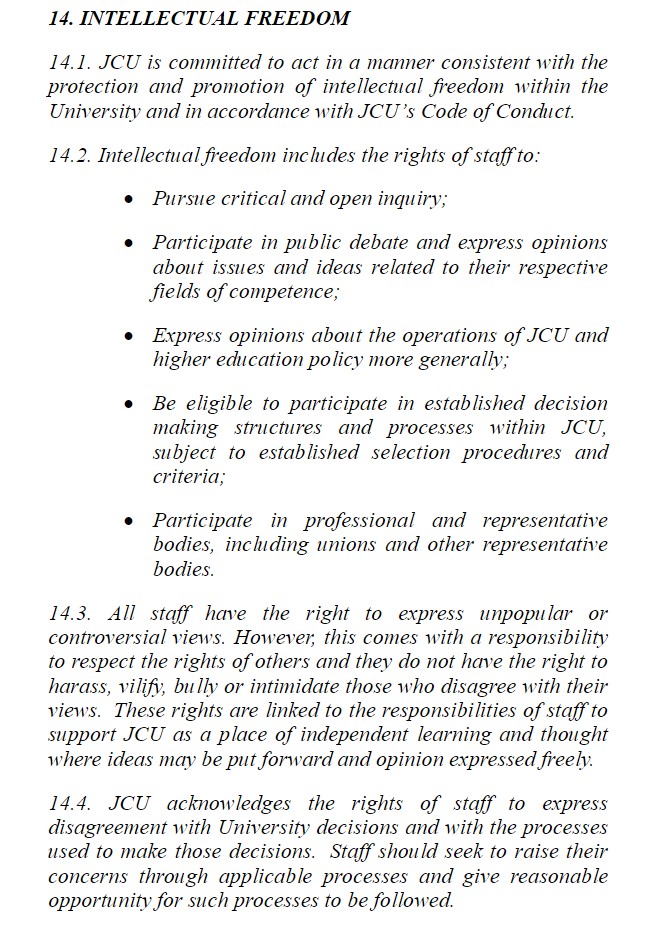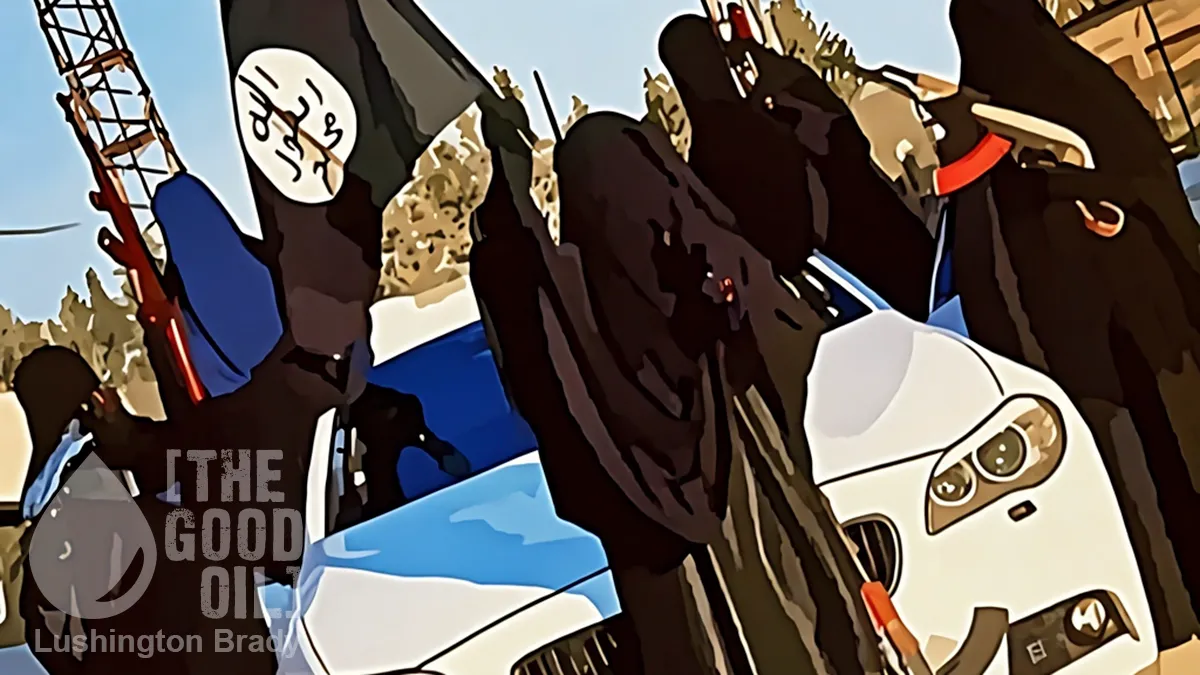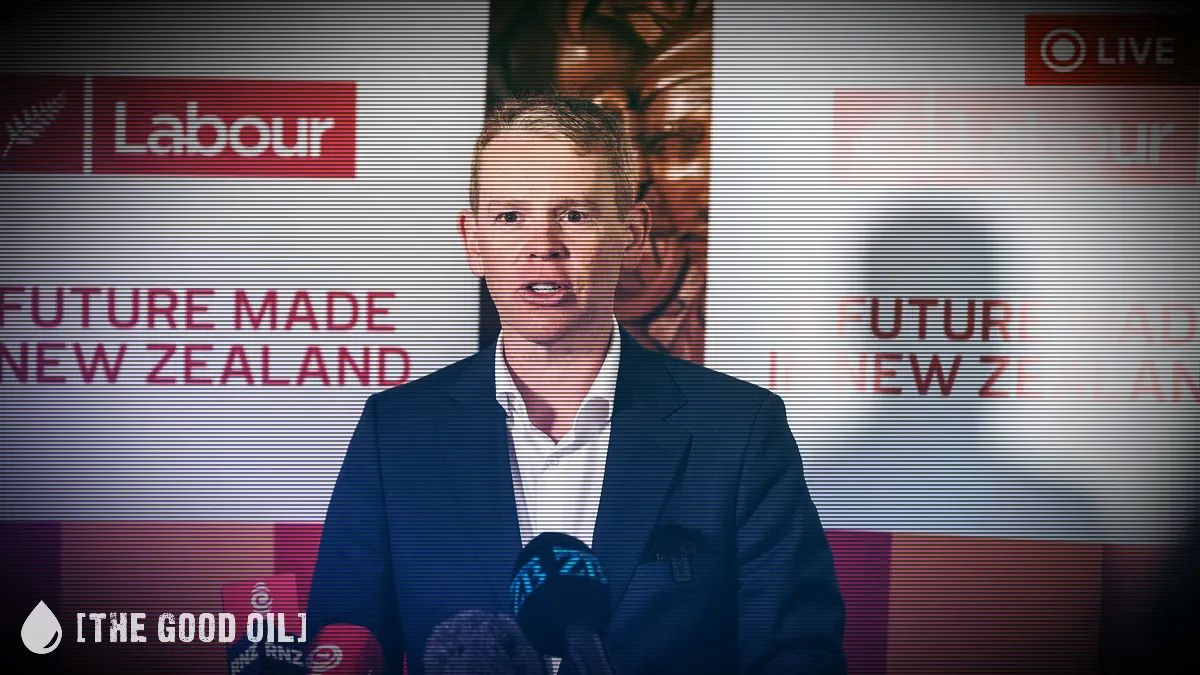Table of Contents

After an academic career of more than 30 years, physics Professor Peter Ridd was fired from James Cook University (JCU) in Townsville, Australia. His crime? Daring to believe in free speech. And, what was worse – Peter had used his free speech to speak against the accepted orthodoxy that climate change was ?killing? the Great Barrier Reef.
He really should have picked a better subject to exercise his right to free speech ? rugby player bashing or something.
Way back in 2016, Ridd went on Sky News and explained that the Australian government was spending more than one billion dollars on the Great Barrier Reef, implementing recommendations from research that had not been checked.
- Australian coral reefs that have supposedly lost all their coral, are in fact covered in healthy coral.
- Reefs that are supposedly smothered in sediments are not.
- Reefs that have been damaged by cyclones and bleaching have rapidly recovered because these are natural phenomena.
Ridd also wrote a chapter in a book about climate change published by IPA. (Institute of Public Affairs)
The university, apparently, did not question what Ridd said, but his right to say it. In particular, the university claimed that he had not been collegial, and continued to speak out even after he was told to shut up.
The university came up with a raft of fresh allegations built on the original serious misconduct charges.
- JCU objected to his criticism of the earlier allegations;
- criticised his involvement with the Institute of Public Affairs and
- objected to his not remaining silent.
The facts of the matter were simple:
- the earlier allegations were an unreasonable infringement on Ridd’s academic freedom, so he was well within his rights to criticise JCU;
- He was not paid by the IPA, other than some initial support for his legal case and reimbursement for flights and hotels related to speaking arrangements, which is normal academic practice;
- Ridd was well within his rights, as stated in his employment agreement, to speak publicly about disciplinary proceedings.
So Ridd was served with a gag order by the university and found it necessary to sue for his right to have an ordinary scientific opinion. His emails were searched. He was not allowed even to speak to his wife about the issue. He was harangued by lawyers. He fought back for the right to academic freedom and to bring attention to the crisis of scientific truth.
And he won yugely!
In a huge victory for climate skeptics and believers in free speech everywhere, Judge Salvatore Vasta found that all findings made by James Cook University, including the sacking of Ridd, were unlawful.quote.
302. That is why intellectual freedom is so important. It allows academics to express their opinions without fear of reprisals. It allows a Charles Darwin to break free of the constraints of creationism. It allows an Albert Einstein to break free of the constraints of Newtonian physics. It allows the human race to question conventional wisdom in the never ending search for knowledge and truth. And that, at its core, is what higher learning is about. To suggest otherwise is to ignore why universities were created and why critically focussed academics remain central to all that university teaching claims to offer. (Clause 14 of the EA shown below for reference.)End quote.
FINDINGS:
303. In light of the above, I make the following rulings:
a) The first finding made by the University was unlawful because it breached the rights that Professor Ridd had pursuant to cl.14.
b) The censure given to Professor Ridd was unlawful as it contravened cl.14 of the EA.
c) The First Speech Direction was unlawful in that it sought to interfere with the rights that Professor Ridd had pursuant to cl.14.
d) The Second Finding made by the University was unlawful because it breached the rights that Professor Ridd had pursuant to cl.14.
e) The First Confidentiality Direction was unlawful because the University had no power to give that direction, and even if it did have the power, such a direction was in contravention of the rights that Professor Ridd had pursuant to cl.14.
f) The Third Finding made by the University was unlawful because it breached the rights that Professor Ridd had pursuant cl.14.
g) The Second Confidentiality Direction was unlawful because the University had no power to make such a direction, and even if it did have the power, such a direction was in contravention of the rights conferred on Professor Ridd by virtue of cl.14.
h) The Fourth Finding made by the University was unlawful because it breached the rights of Professor Ridd had pursuant to cl.14.
i) The Fifth Finding made by the University was unlawful because it breached the rights of Professor Ridd given to him by cl.14.
j) The Sixth Finding made by the University was unlawful because it breached the rights of Professor Ridd given to him by cl.14.
k) The Seven Finding made by the University was unlawful because it breached the rights that Professor Ridd had pursuant to cl.14.
l) The Eighth Finding made by the University was unlawful because it breached the rights that Professor Ridd had pursuant to cl.14.
m) The Third Confidentiality Direction was unlawful because the University had no power to make such a direction, and even if it did, such a direction contravened the rights of Professor Ridd pursuant to cl.14.
n) The Second Speech Direction was unlawful in that it sought to interfere with the rights Professor Ridd had pursuant to cl.14.
o) The Fourth Confidentiality Directions was unlawful because the University had no power to make such a direction, and even if it did, such a direction contravened the rights of Professor Ridd pursuant to cl.14.
p) The no satire direction was unlawful in that it sought to interfere with the rights Professor Ridd had pursuant to cl.14.
q) The Fifth Confidentiality Direction was unlawful because the University had no power to make such a direction, and even if it did, such a direction contravened the rights of Professor Ridd pursuant to cl.14.
r) The Second Censure was unlawful because it contravened cl.14 of the EA.
s) The Ninth Finding made by the University was unlawful because it related to the breach of a direction which was of itself unlawful.
t) The Tenth Finding made by the University was unlawful because it related to the breach of a direction which was of itself unlawful.
u) The Eleventh Finding made by the University was unlawful because it related to the breach of a direction which was of itself unlawful.
v) The Twelfth Finding made by the University was unlawful because it breached the rights that Professor Ridd had pursuant to cl.14.
w) The Thirteenth Finding made by the University was unlawful because it breached the rights the Professor Ridd had pursuant to cl.14.
x) The Fourteenth Finding made by the University was unlawful because it related to the breach of a direction which was of itself unlawful.
y) The Fifteenth Finding made by the University was unlawful because of breached the rights that Professor Ridd had pursuant to cl.14.
z) The Sixteenth Finding made by the University was unlawful because it breached the rights that Professor Ridd had pursuant to cl.14.
aa) The Seventeenth Finding made by the University was unlawful because it had no substance whatsoever, and even if there were the slightest scintilla of evidence, it was contrary to the rights that Professor Ridd had pursuant to cl.14.
bb) The termination of Professor Ridd?s employment was unlawful because it punished Professor Ridd for conduct that was protected by cl.14 of the EA.






